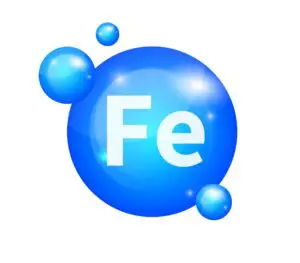Coffee is a widely loved beverage enjoyed by millions around the world. It’s so ubiquitous that it may seem like there’s no downside to indulging in a cup (or three) at any time of day. But when it comes to your iron intake, there’s one question many people have: how long after taking iron can you drink coffee? The answer might surprise you and could impact your health more than you realize. This blog post will explore what happens when coffee and iron collide, how it affects our bodies, and what timing is best for optimal absorption. So if you’re a coffee-drinking individual who wants to ensure they’re getting the most out of their iron supplements or diet, read on!
Why Is Iron Absorption Important For Our Bodies?

Iron is an essential mineral that is vital in maintaining a healthy body. Its primary function is to transport oxygen from the lungs to all body parts through hemoglobin found in the blood cells. Without adequate iron levels, the body’s cells do not receive enough oxygen, leading to anemia, fatigue, and other health problems.
Moreover, iron is also needed for myoglobin production, which serves as oxygen storage and diffusion in muscle cells. Unfortunately, the body cannot produce iron and must obtain it through the diet. However, iron absorption can be challenging, with some people experiencing poor absorption rates. Therefore, knowing the best ways to increase iron absorption rates is essential.
Consuming animal sources of iron and consuming vitamin C, mainly found in citrus fruits, can aid in improving iron absorption, ensuring the body gets the necessary oxygen to maintain optimal health.
How Coffee Affects Iron Absorption?
It is a known fact that coffee hinders iron absorption in the body. The tannin and polyphenols present in coffee and tea are known to reduce the absorption of iron. However, one can still continue drinking coffee. It is better to consume coffee at a different time than iron-rich foods.
It is important to note that coffee can reduce iron absorption in the body, but it is not the only cause of iron deficiency. Nutritionists suggest consuming iron-rich foods and supplements alongside foods rich in vitamin C, as this vitamin enhances iron absorption in the body.
With this in mind, enjoy your coffee, but be mindful of how it may affect iron absorption and adjust consumption as needed to maintain a healthy balance of nutrients in the body.
How Long After Taking Iron Tablets Can You Drink Coffee?
Iron tablets are commonly taken as a supplement to meet the body’s iron needs. However, if you are a coffee lover, you may be wondering how long you should wait after taking iron tablets before enjoying your daily cup of joe. The answer depends on a few factors, including the type of iron supplement you are taking and how much coffee you want to drink.
First, let’s explore the effects of coffee on the body. Coffee contains caffeine, which is a central nervous system stimulant that can improve alertness and energy levels. It has also been shown to enhance physical performance and improve mood. Additionally, coffee has been linked to a reduced risk of various diseases, including cardiovascular disease and certain types of cancer. However, it can also have negative effects, such as causing anxiety, interfering with sleep, and causing gastrointestinal issues in some individuals.
Now, let’s discuss how coffee affects the absorption of iron. Iron is an essential mineral that plays a crucial role in transporting oxygen in the blood and producing energy. When you take iron supplements, it is important for your body to absorb the iron effectively. Coffee, particularly when consumed directly after taking the supplement, can interfere with the absorption of iron. The extent of this interference depends on the type of iron supplement you are taking and the amount of coffee you want to drink.
If your iron supplement contains ferrous sulfate, it is recommended to wait at least one hour after taking the supplement before drinking coffee. This is because coffee can hinder the absorption of iron. On the other hand, if you are taking an iron supplement that contains another form of iron, such as ferrous gluconate or ferrous fumarate, you can drink coffee immediately after taking the supplement.
Furthermore, the amount of coffee you consume also matters. If you plan to have more than one cup of coffee after taking your iron supplement, it is advisable to wait before drinking the second cup. This allows your body enough time to absorb the iron. Generally, it is best to avoid drinking coffee within two hours of taking any iron supplement. If you need a cup of coffee to start your day, try to drink it at least one hour before taking your iron supplement to ensure optimal absorption.
If waiting to drink coffee is not an option for you, you can opt for decaf coffee or tea instead. Decaffeinated versions of these beverages contain significantly less caffeine and are unlikely to interfere with the absorption of iron. Alternatively, you can try taking your iron supplement with a meal, as this may help increase absorption.
In conclusion, if you are taking iron tablets, it is important to consider the timing of your coffee consumption. Wait at least one hour after taking ferrous sulfate supplements before drinking coffee, and avoid drinking coffee within two hours of taking any iron supplement. By taking these precautions, you can ensure optimal absorption of iron and support your overall health.
Read more:
- Is Coffee Good for Sore Throat? The Facts
- Intermittent Fasting and Coffee with Milk – Does It Break a Fast?
- Pantoprazole and Coffee: Can You Drink It Safely?
- The Laxative Effect Of Coffee: How To Stop Coffee From Making You Poop?
- Coffee And Iron Absorption: How Long After Taking Iron Can You Drink Coffee?
Research On The Timing Of Iron Intake And Coffee Consumption
Research has shown that the timing of iron intake and coffee consumption plays an important role in maintaining proper iron levels in the body. Drinking coffee with meals can hinder iron absorption and lead to iron deficiency over time, especially for those already at risk.
It is recommended to wait at least 30 minutes after eating before drinking coffee and to avoid consuming it with foods high in iron. Additionally, waiting at least four hours after taking an iron supplement before consuming coffee is best. Nutritionists advise waiting for one to two hours after taking iron supplements before consuming foods or beverages that may interfere with iron absorption.
Individuals can support their overall health and well-being by being mindful of the timing of iron intake and coffee consumption.
How Long Does Caffeine Inhibit Iron Absorption?
Caffeine, found in coffee and other caffeinated beverages, has been shown to inhibit the absorption of iron in the body. The effect of caffeine on iron absorption can vary depending on several factors. One study found that drinking a cup of coffee with a hamburger meal reduced iron absorption by 39%, while drinking tea with the same meal reduced absorption by 64%. Another study showed that instant coffee reduced iron absorption by 60-90% when consumed with a bread meal.
The degree to which caffeine affects iron absorption seems to depend on the strength and type of coffee or tea. Stronger coffee or tea tends to result in less iron being absorbed. However, caffeine itself only binds to about 6% of the iron from a meal, so other factors must also play a role in inhibiting iron absorption.
Polyphenols, compounds found in coffee and tea, are thought to be major inhibitors of iron absorption. These polyphenols, such as chlorogenic acid and tannins, bind with iron during digestion, making it more difficult for the body to absorb. The inhibitory effect of polyphenols on iron absorption is dose-dependent, meaning that higher levels of polyphenols can significantly reduce iron absorption.
It’s important to note that the type of meal consumed also affects iron absorption. Heme iron, found in animal tissues, is more easily absorbed than non-heme iron found in plant-based foods. Coffee and caffeinated drinks are more likely to inhibit the absorption of non-heme iron from plant-based foods compared to heme iron from animal foods.
For most healthy individuals who have a balanced diet and are not at risk of iron deficiency, moderate consumption of coffee and caffeine is unlikely to cause any significant problems with iron absorption. However, certain groups, such as women of childbearing age, infants, vegetarians, and people with certain medical conditions, may be at higher risk of iron deficiency and should be more cautious with their coffee and caffeine intake.
In conclusion, while caffeine in coffee and other caffeinated beverages can inhibit iron absorption, the extent of this inhibition depends on factors such as the strength and type of coffee or tea consumed, the presence of polyphenols, and the type of iron in the meal. For individuals at risk of iron deficiency, it may be beneficial to follow certain strategies, such as consuming coffee or tea between meals, increasing heme iron intake through animal foods, and separating iron-rich foods from high-calcium and high-fiber foods.
How Long Does It Take for Iron to Absorb Fully?
Iron absorption is a complex process that can be influenced by various factors, such as the form of iron being consumed, other dietary components, and individual differences in iron status. It is important to understand how long it takes for iron to fully absorb in order to optimize its absorption and ensure adequate iron levels in the body.
Research studies have shown that iron absorption can be affected by the timing and frequency of iron supplementation. One study found that iron absorption from supplements was significantly lower on the second day of administration compared to the first day in iron-deficient anemic women. This suggests that the body may need time to fully absorb and utilize the iron from supplements.
Another study revealed that the removal of phytates in bran significantly increased iron absorption. Phytates are compounds in certain plant-based foods that can bind to iron and reduce absorption. By removing phytates, the absorption of iron can be enhanced.
The duration of iron absorption can vary depending on the individual and their specific circumstances. In general, taking iron supplements with meals is recommended to improve absorption. It is also advisable to avoid consuming foods or beverages that may inhibit iron absorption, such as tea or coffee, as they contain compounds that can interfere with iron uptake.
To ensure optimal iron absorption, it is recommended to consult with a healthcare professional or a registered dietitian who can provide personalized advice based on your specific needs and circumstances. They can help determine the appropriate dosage and timing of iron supplementation to maximize absorption and support iron levels in the body.
In conclusion, the time it takes for iron to absorb fully can vary depending on various factors. By understanding these factors and following recommendations from healthcare professionals, individuals can optimize iron absorption and support their overall iron status.
The Role Of Coffee In Iron Absorption

It is a commonly known fact that coffee hinders the absorption of iron in the body due to the presence of tannin and polyphenols. While this may be worrying for coffee enthusiasts, it is not necessary to eliminate coffee completely. Moderation is key as other factors are at play, including the type of food consumed with coffee.
It is best to avoid consuming coffee with iron-rich foods to ensure maximum absorption of vital nutrients. Additionally, it is important to note that coffee inhibition of iron absorption may be due to caffeine and other compounds present in coffee, such as acids.
Understanding the role of coffee in iron absorption can help individuals make informed decisions about their coffee consumption and ensure they are getting the necessary nutrients for their body’s needs.
Other Foods And Drinks That Can Affect Iron Absorption
A variety of foods and drinks can impact the absorption of iron in the body. In addition to tea and coffee, other beverages, such as red wine and milk, can also inhibit iron absorption. Foods high in calcium, such as dairy products and leafy greens, can also decrease iron absorption. On the other hand, consuming foods high in vitamin C, such as citrus fruits and tomatoes, can enhance iron absorption. Phytate-containing foods like whole grains, legumes, and nuts can also significantly impact iron absorption, reducing it by up to 50%.
It’s important to balance these factors when planning meals to ensure that the body can effectively absorb and utilize iron.
Tips For Increasing Iron Absorption
Iron is an essential nutrient for our bodies, but it can be challenging to absorb from our food. Luckily, there are ways to enhance iron absorption in our bodies. Here are some tips for increasing iron absorption:
- Eat foods high in vitamin C: Vitamin C helps enhance the absorption of dietary iron. You can find vitamin C in citrus fruits, dark green leafy vegetables, bell peppers, melons, and strawberries.
- Pair iron-rich foods with vitamin C-rich foods: The best way to absorb iron, especially from non-heme sources of iron, is to pair it with vitamin C-rich foods like lemons.
- Try eating meat and seafood: These foods are rich in heme iron, which is easier for our bodies to absorb than non-heme iron found in plant-based foods.
- Take a vitamin C supplement or drink orange juice with iron pills: Some doctors suggest taking a vitamin C supplement or drinking orange juice with your iron pill to help enhance iron absorption.
- Avoid drinking calcium-rich beverages with iron-rich meals: Calcium can inhibit iron absorption, so it’s best to avoid drinking calcium-rich beverages like milk or fortified juices with iron-rich meals.
- Cook in cast iron cookware: Cooking with cast iron cookware can increase the iron content of your food.
- Limit caffeine and tannin consumption: Caffeine and tannins found in tea, coffee, and red wine can inhibit iron absorption. Limiting your consumption of these beverages can help enhance iron absorption.
Incorporating these tips into your diet can help enhance iron absorption and ensure you get the nutrients your body needs.
Alternatives To Coffee For Enjoying Your Morning Caffeine Fix
Plenty of coffee alternatives are available for those looking to switch up their morning routine but still need that caffeine fix. Green tea has less caffeine and is a healthy option. Yerba mate, originating from South America, is a tea made from leaves and twigs of the yerba mate plant and is said to have energizing properties.
Chicory coffee is a great option for those who don’t want to part with the flavor of coffee, while matcha provides a caffeine boost for those who need it. Red tea, roasted dandelion root, and lemon water are also caffeine-free alternatives.
With so many options available, finding a coffee alternative that suits individual preferences and needs is easy.
FAQ about How Long After Taking Iron Can You Drink Coffee?
Q: Is it okay to drink coffee after taking iron supplements?
A: It’s best to wait at least an hour before drinking coffee after taking iron supplements. This is because coffee can delay iron absorption by up to two hours.
Q: Can drinking coffee affect iron absorption?
A: Studies have shown that drinking coffee can delay iron absorption by up to two hours. Therefore, waiting at least an hour after taking iron before drinking coffee is recommended.
Q: What happens if I drink coffee too soon after taking iron supplements?
A: If you drink coffee too soon after taking iron supplements, it can delay iron absorption by up to two hours. This means you may get a partial benefit from your iron supplements.
Q: How long should I wait to drink coffee after taking iron supplements?
A: It’s best to wait at least an hour after taking iron supplements before drinking coffee. For those at risk of iron deficiency, avoid coffee and caffeine at mealtimes and wait at least one hour after a meal before consuming coffee.
Q: Can I eat or drink anything else after taking iron supplements?
A: It’s recommended to wait at least an hour before consuming anything else, including food or beverages, after taking iron supplements. This will allow your body to absorb the iron properly.
Q: What foods should I avoid when taking iron supplements?
A: Foods that are high in calcium, such as dairy products, should be consumed at least two hours before or after taking iron supplements. Additionally, it’s best to avoid tea and coffee for at least an hour after taking iron supplements.
Read more:
- Can Coffee Make You Nauseous? How To Manage Your Caffeine Intake
- How Soon Can You Drink Coffee After Taking Omeprazole?
- Can I Drink Coffee While Taking Meloxicam? Risks and Benefits
- Is Decaf Coffee a Diuretic or Not? The Truth Behind the Myth.
- Can You Drink Coffee After a Tooth Extraction? Here’s the Answer
Conclusion And Recommendations For Coffee And Iron Intake.
That’s all for today’s discussion on coffee and iron absorption. It’s important to keep our bodies healthy, and understanding how certain foods and beverages affect our nutrient absorption is a key part of that. We hope you found this information helpful. If you have any questions or comments about this topic, please feel free to share them with us in the comments section below.
References
- https://medlineplus.gov/ency/article/007478.htm
- https://www.health.harvard.edu/blog/energy-boosting-coffee-alternatives-what-to-know-202302222893

James Robinson loves coffee and blogging all about coffee. His blog is full of informative posts about the best ways to enjoy coffee and the many different types of coffee out there. He also shares recipes for delicious coffee-based dishes, and his followers can always count on him to offer tips on how to improve their coffee-making skills.
